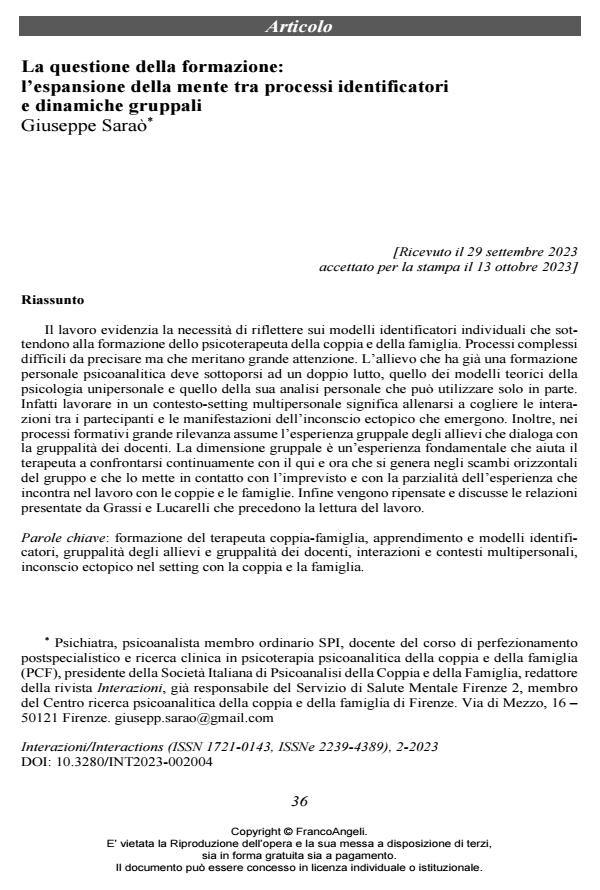The question of formation: the expansion of the mind between identification processes and group dynamics
Journal title INTERAZIONI
Author/s Giuseppe Saraò
Publishing Year 2023 Issue 2023/2
Language Italian Pages 13 P. 36-48 File size 169 KB
DOI 10.3280/INT2023-002004
DOI is like a bar code for intellectual property: to have more infomation
click here
Below, you can see the article first page
If you want to buy this article in PDF format, you can do it, following the instructions to buy download credits

FrancoAngeli is member of Publishers International Linking Association, Inc (PILA), a not-for-profit association which run the CrossRef service enabling links to and from online scholarly content.
The paper highlights the need to reflect on the individual identification models un-derlying the training of the couple and family psychotherapist. These are complex pro-cesses that are difficult to specify but which deserve great attention. The trainee who al-ready has personal psychoanalytic training must undergo a double mourning, that of the theoretical models of unipersonal psychology and that of his or her personal analysis, which he or she can only partially use. In fact, working in a multipersonal context-setting means training oneself to grasp the interactions between the participants and the manifes-tations of the ectopic unconscious that emerge. Moreover, in the training processes, the group experience of the learners, which dialogues with the groupness of the teachers, takes on great relevance. The group dimension is a fundamental experience that helps the therapist to continually confront the here and now that is generated in the horizontal ex-changes of the group and that puts him in contact with the unexpected and the partiality of experience that he encounters in his work with couples and families. Finally, the re-ports presented by Grassi and Lucarelli preceding the reading of the work are reviewed and discussed.
Keywords: training of the couple-family therapist, learning and identifying models, learners’ and teachers’ gruppality, interactions and multi-personal contexts, ectopic un-conscious in the setting with couples and families.
Giuseppe Saraò, La questione della formazione: l’espansione della mente tra processi identificatori e dinamiche gruppali in "INTERAZIONI" 2/2023, pp 36-48, DOI: 10.3280/INT2023-002004